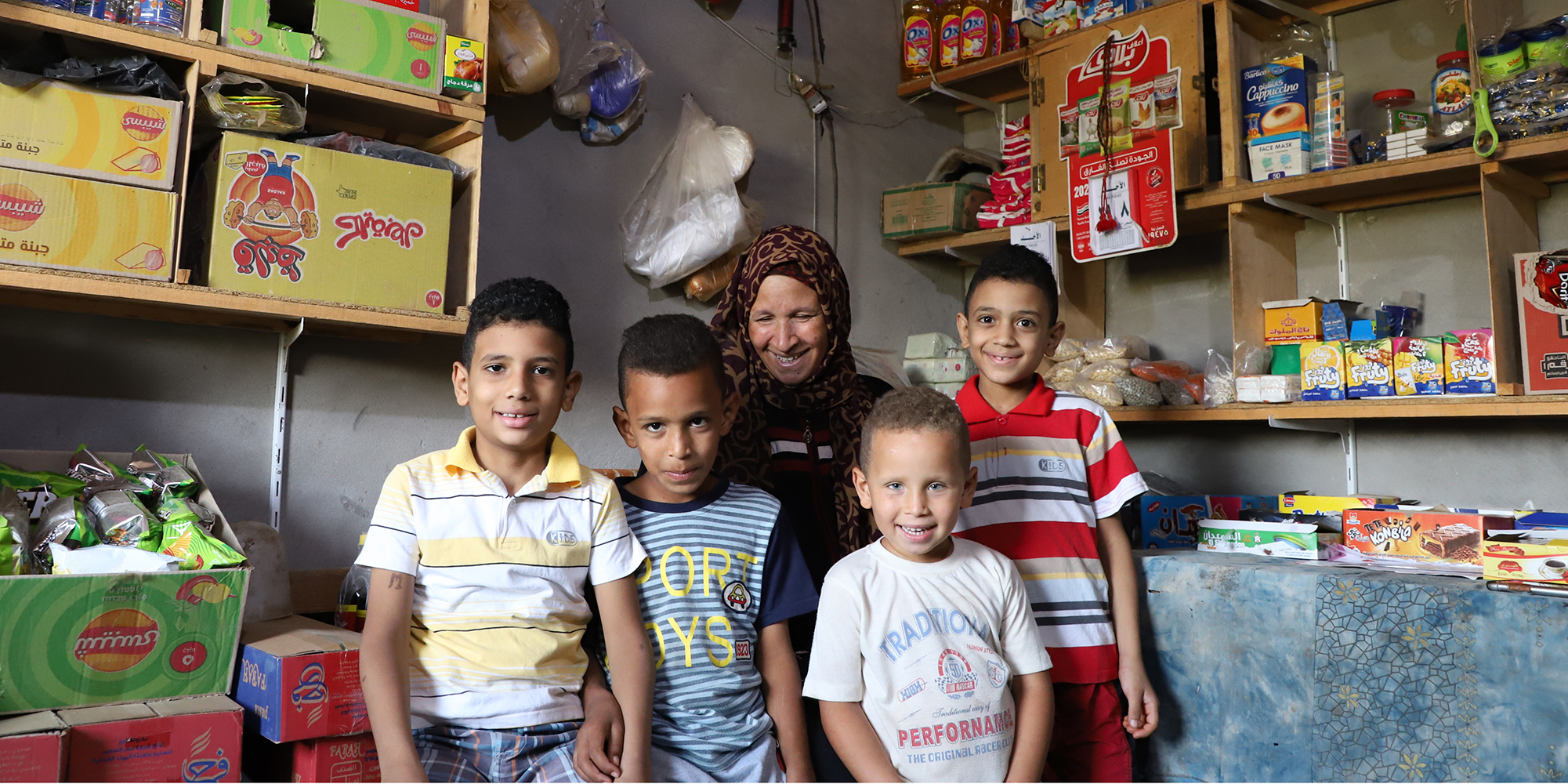
Surveying family participants in the Graduation Approach program, also known as Bab Amal, in rural Egypt. September 2021.
J-PAL Middle East and North Africa
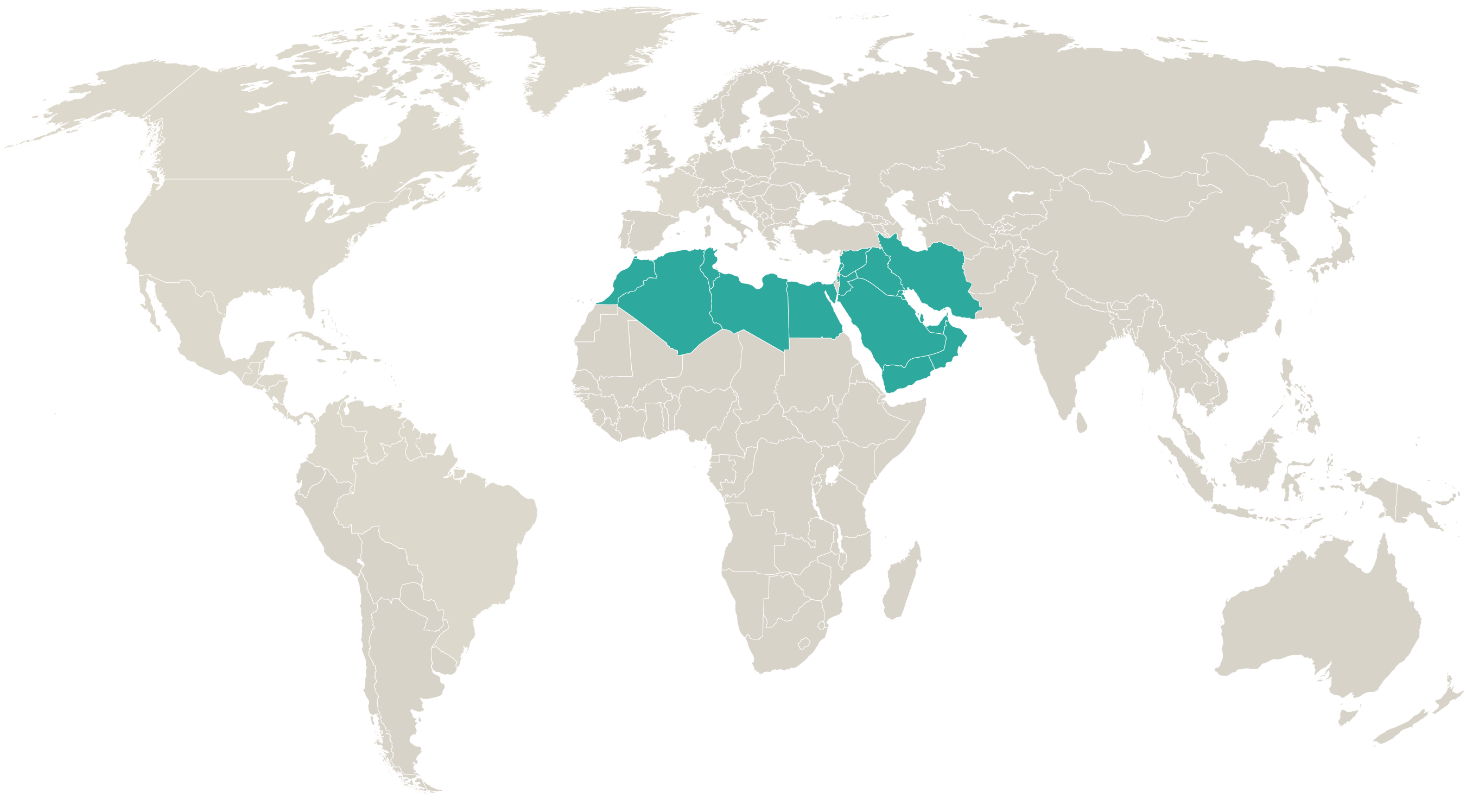

From the Executive Director
2022 was a dynamic year at J-PAL MENA. We launched an embedded lab with Egypt’s Ministry of Planning and Economic Development to generate and use evidence to strengthen the effectiveness of national policies in social protection, family development, employment, and women’s empowerment, and recently opened the first call for impact evaluation proposals to be conducted under the lab.
The Morocco Employment Lab’s research portfolio continues, and we shared lessons on how to reduce unemployment with partners in the Ministry of Labor and across the government.
Egypt recently hosted COP27 and the UAE will host COP28 next year, bringing momentum to our efforts to evaluate innovative approaches to reduce carbon emissions and bring evidence to the design of climate change adaptation programs.
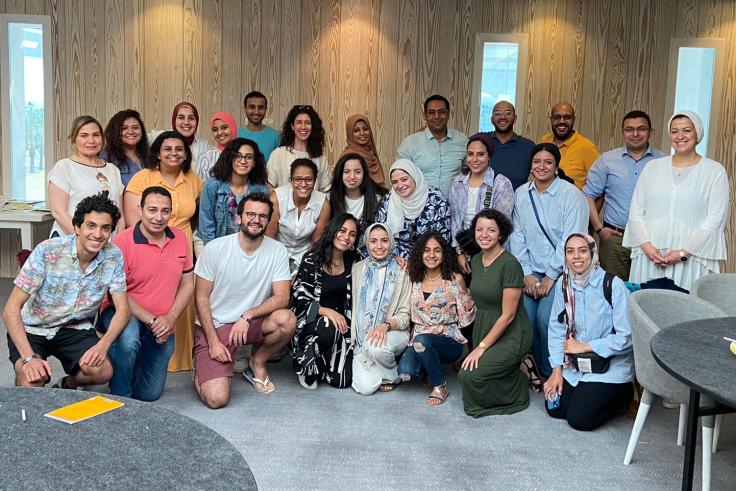
To support the research ecosystem in the region, we are thrilled to have launched the MENA Scholars Fellowship, which will select its inaugural cohort of scholars from universities across the region early next year; fellows will have the opportunity to work on randomized evaluations and participate in a tailored, two-year mentoring and development program.
Across the region, we are building new partnerships with governments and NGOs, sharing evidence-informed insights, and looking ahead in 2023 to having results from several long-running evaluations in the region. We continue to grow the team in Egypt and Morocco, bringing fresh graduates, sector experts, and senior leadership alike into J-PAL MENA.
The year ahead will see continued growth as new impact evaluations begin, policy partnerships deepen, and our capacity-building agenda grows. We’re thankful to the many partners we work with and donors who supported the expansion of our work in several significant areas this year and we look forward to deepening our collaborations in the years ahead.

J-PAL Middle East and North Africa leadership

Bruno Crépon
Scientific Director
ENSAE and École Polytechnique
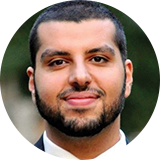
Adam Osman
Scientific Director
University of Illinois at Urbana-Champaign

Alison Fahey
Executive Director
J-PAL Middle East and North Africa in review
Launching the Egypt Impact Lab: Since the Egypt Impact Lab (EIL) launch in March 2022, J-PAL MENA released the Lab’s first call for research proposals and conducted extensive partnership development with strategic government partners to design and matchmake new randomized evaluations related to family development, gender norms, and financial inclusion.
We held a roundtable and training for government champions from EIL strategic government partner organizations, titled “Leading Evidence-Informed Decision-Making.” The event included discussions to shape EIL’s research agenda and lay the foundations for evaluation results to inform program scale decisions, with participants from the Ministry of Planning and Economic Development; the Micro, Small, and Medium Enterprise Development Agency; the National Council for Women; the Ministry of Social Solidarity; and the National Institute for Governance and Sustainable Development. The evidence champions who participated in the event will continue to shape the Lab’s work moving forward.
Under the EIL’s women’s empowerment theme, the team hosted an evidence-sharing seminar titled “Global Evidence on Digital Financial Services and Savings Groups: Impact on Women’s Empowerment” with the Ministry of Planning and Economic Development, the National Council for Women, the Central Bank of Egypt, and UN Women Egypt.
EIL launched its first call for proposals for exploratory, pilot, and full impact evaluations; teams of J-PAL affiliates and EIL government partner implementers will submit applications in early 2023.
Participating in COP27: J-PAL MENA expanded policy outreach in our Environment, Energy, and Climate Change sector in a year that saw climate dominate the regional policy agenda as Egypt and the UAE are back-to-back COP hosts in 2022 and 2023, respectively.
In the run-up to COP27, J-PAL MENA and UNICEF Egypt hosted an evidence-sharing seminar, “Changing Behaviors to Address Climate Change.” J-PAL co-founder Esther Duflo discussed climate and poverty on a panel hosted by the World Bank, the UN's Climate Change High-Level Champion, and the Ministry of International Cooperation in Egypt.
At COP27, J-PAL MENA participated in several panels to emphasize the importance of a data- and evidence-informed approach to implementing climate adaptation policy and the role of evaluation in surfacing new scalable innovations to mitigate emissions and help communities adapt.
Increasing policy outreach and expanding research portfolio: The Global Evidence for Egypt seminar series, hosted with support from UNICEF Egypt and Allianz, continued bringing evidence into policy discussions related to family planning, early childhood development, climate change, and agriculture. These sessions help build new relationships with government partners and identify priority topics in which new evaluations can answer pressing questions or where existing evidence can be used to strengthen program design. With the Egyptian Food Bank, we also held a cross-sectoral evidence-sharing session to promote evidence use in social protection and nutrition programs at the food bank and to explore potential randomized evaluations.
With the Sawiris Foundation, we held an event to launch the Bab Amal impact evaluation, an adaptation of the Graduation Approach, with presentations and preliminary findings presented by researchers and research staff. We also collaborated with the foundation to host a workshop on evidence-based policies in early childhood development with a focus on the ongoing evaluation of the impact of subsidized nursery access on mothers’ labor force participation.
And in many smaller, closed-door meetings and presentations, we brought global evidence and policy recommendations to the government, NGOs, international organizations, and development finance institutions.
Removing barriers to research led by locally-based scholars: We launched the MENA Scholars Fellowship to support early career researchers, strengthen the local grounding of impact evaluations in the region, and build experience in rigorous experimental methods. The first cohort of fellows will be selected in 2023.
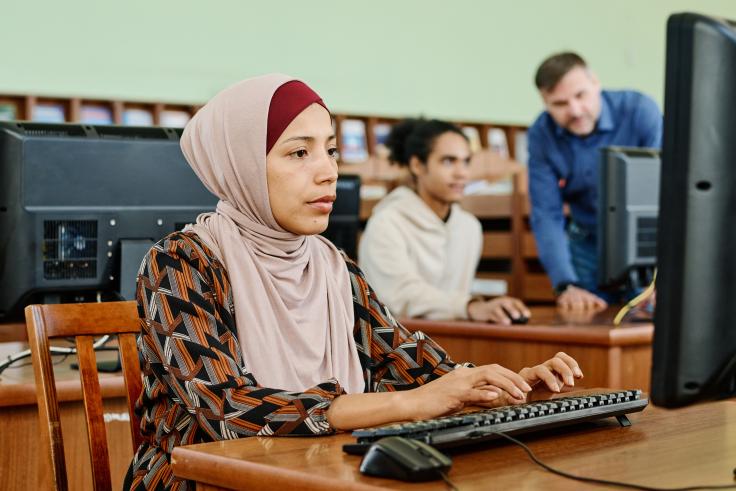
Expanding work in the region through the Morocco Employment Lab: The Morocco Employment Lab (MEL) hosted a series of roundtables focusing on youth economic inclusion to gather perspectives from key practitioners and policymakers and share evidence, such as the Moroccan Minister of Labor and World Bank leadership.
In partnership with J-PAL Europe, MEL completed a seven-module Massive Open Online Course (MOOC) on impact evaluation and evidence use in French. MEL is exploring collaboration opportunities with the Moroccan Ministry of Education and stakeholders involved in social protection reform in the country.
The year ahead
Explore an expansion of embedded labs: We are looking to expand the successful embedded labs model with partners focused on climate change and education.
Host the first MENA-based edition of J-PAL’s flagship Evaluating Social Programs (ESP) course: We aim to strengthen Egypt Impact Lab partners’ understanding of when, why, and how to conduct impact evaluations and how evidence can strengthen government policy priorities. Throughout the course, we will workshop new ideas for randomized evaluations with strategic government partners in hopes that some will become new evaluations under the lab. In conjunction with ESP, we will hold a joint conference with UNICEF Egypt to conclude the current phase of our Global Evidence for Egypt partnership, looking ahead to the importance of generating new, locally-relevant evidence in response to government priorities.
Strengthen partnerships with new ministries in Morocco: We aim to incubate new impact evaluations of national priority policies and will explore the feasibility of strengthening ties to Moroccan universities and local research networks.
Work to develop a rigorous research ecosystem at several levels: From implementing the first year of the MENA Scholars Fellowship to continuing our outreach to regional undergraduate and graduate students, to training data collection professionals, we will grow our expertise and body of research to advance evidence use in the region.
Key partnership opportunities
- Despite the expansion in impact evaluations in the MENA region since J-PAL MENA and MEL launched in 2020, still fewer than 2 percent of all randomized evaluations in the J-PAL network have been conducted in the MENA region. This lack of locally-generated rigorous evidence impedes efforts to strengthen evidence-based policy. To address this gap, J-PAL MENA is planning to launch a region-wide research initiative, which will allocate funding to impact evaluations of programs and policies that work to reduce poverty, increase climate resilience, and improve lives across sectors and across the region. J-PAL MENA seeks funding partners to help shape and launch the initiative in 2023.
Lead photo credit: Sawiris Foundation for Social Development
